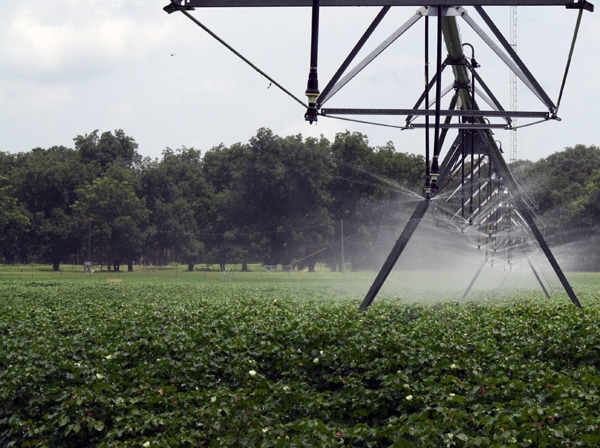May 6, 2015

Have you ever started to do something on your farm that is required by legislation or a regulation and wondered to yourself, “Who made this rule, and what were they thinking?”
Many times, it’s beyond your control, such as an EPA edict that has been handed down based more on ideology or political party than common sense or science. But there are other times when you can have an influence, and even if the ultimate outcome is not to your liking at least you can say you made your case.
Now is such a time in Alabama as far as water policy.
This past month, the Permanent Joint Legislative Committee on Water Policy & Management held its inaugural meeting for the 2015-2018 quadrennium at the Alabama State House in Montgomery.
The Water Committee was expected to receive updates on the Alabama Water Agencies Working Group’s (AWAWG) efforts to assess the water resources of the state of Alabama and AWAWG’s work to develop recommendations for a comprehensive water management plan. Ultimately, the Water Committee is responsible for recommending a water management plan for the state.
Over the next four years, the committee will play a critical role in developing a comprehensive water management plan for Alabama, and agricultural water use will be part of the plan. Based on the past performance of our state legislature, it’s probably not something you want to leave in their hands.
At the Alabama Corn and Wheat Short Course held in Auburn this past winter, several prominent Alabama farmers encouraged their fellow growers to make their voices heard during this process. Annie Dee, who farms in west Alabama and east Tennessee, says it’s important that all producers be present at the table.
“If you want me to go along with it, I need to be at the table to help shape these policies. I need to be included. We’ll all be looking out for our own interests, and we all need to go to the meetings, speak up, and let them know what our opinions are. All farmers in Alabama have a stake in this, so don’t just assume that they won’t listen to you,” says Dee.
Dennis Bragg, whose family farming operation is located in north Alabama’s Tennessee Valley, urges growers to protect their rights.
“You sitting there right now, on your farm, have rights – don’t give them up. Rest assured, Annie and I will look after our rights because they’re very personal to us, and if you have the same philosophy as we do, you’ll benefit from looking after your own. But it makes a better statement if we’re all at the table. We like our Constitution as it is, and we want to build on it and not take from it or carve away at it.”
Larkin Martin, another well-known north Alabama farmer, talked about some lessons she has learned when it comes to irrigation studies.
“I farm in Lawrence County and was involved in an irrigation study about 15 years ago. During this time I learned a couple of things that are interesting to know,” she says.
In an agricultural part of the state that is intensely farmed, only a very few of the acres are actually in cultivation, she says. “So the efficiencies of the services are not good, regardless of the type of irrigation. It becomes very expensive, on a per-acre basis, no matter how the system is designed, even with the best possible water source.”
The second lesson she learned was a political one, says Martin. “In this case, no individual farmer or group of farmers could do it individually, so a water district would have been required. As farmers become aware of this political issue, drainage basins and water systems that make sense geographically, topographically, and by other standards probably are going to become the vehicles that need to be and should be formed to enter into the conversation effectively. Collections of people who have a common interest in a common watershed and are willing to govern themselves on an issue are much more effective at the table,” she says.
If you’re not already at the table, contact your local representative and senator to reserve your place.
About the Author(s)
You May Also Like






